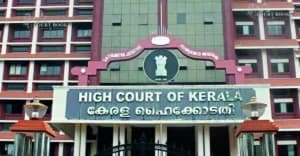In a significant development, the Madras High Court has stated that the funds payable by the Central Government to the States under the Right to Education (RTE) Act should not be linked to the implementation of the National Education Policy (NEP) 2020. The Court also urged the Centre to consider releasing the funds under the Samagra Shiksha Scheme to the Tamil Nadu Government without any conditions tied to the NEP.
The Division Bench comprising Justice GR Swaminathan and Justice V Lakshminarayanan was hearing a writ petition filed by V Easwaran, seeking directions to the State to immediately initiate the admission process under the RTE Act for the academic year 2025-2026. The Court had reserved its order during its vacation sitting.
During the hearing, the State Government submitted that the Central Government had not released its share of funds since 2021. It alleged that the delay was due to political reasons. According to the funding structure, the Centre is required to contribute 60% while the State provides 40%. However, the Centre has withheld funds, claiming that Tamil Nadu has not signed a Memorandum of Understanding (MoU) for the implementation of the NEP 2020.
"It is true that implementation of the Samagra Shiksha Scheme is aligned to NEP 2020, but then obligation under RTE is independent by itself," the Court observed.
The Additional Solicitor General, ARL Sundaresan, informed the Court that the funds under the Samagra Shiksha Abhiyan were not released because the State had refused to enter into an MoU agreeing to implement the NEP.
The Bench clarified that under Section 7 of the RTE Act, the central and state governments have concurrent responsibility for funding. Section 7(3) specifically mandates the Central Government to provide grants-in-aid to the States, based on consultation, for the purpose of carrying out the Act's provisions.
"Section 7 of the Act states the central government and the state government will have concurrent responsibility for providing funds for carrying out provisions of the Act. Section 7(3) mandates that the central government shall provide to the state government as grants-in-aid of revenues, such percentage of expenditure referred to in sub-section (2) as it may determine, from time to time, in consultation with the State Governments. Therefore, funds payable to the state governments representing the central government share towards discharging the RTE obligations need not be linked to NEP 2020," the Court stated.
While the Court refrained from issuing binding directions to the Centre due to the pendency of a suit filed by the State Government before the Supreme Court regarding the fund withholding issue, it urged the Centre to delink the RTE component from the Samagra Shiksha Scheme.
Since the State Government has filed a suit in the Supreme Court against the withholding of funds, this Court cannot issue any binding directions. However, the Centre is urged to consider delinking the RTE component, the Court said.
Regarding the relief sought by the petitioner, the Court directed the State Government to proceed with disbursements as per the timelines outlined in the RTE statute. The Court further clarified that the non-receipt of central funds cannot be an excuse for the State to avoid its statutory responsibilities.
"The State Government is obligated to reimburse private unaided schools that admit students under the provisions of the RTE Act. Non-receipt of funds from the Central Government cannot be cited as a ground to avoid fulfilling this statutory obligation," the Court emphasized.
The matter was disposed of with these observations. A detailed order is awaited.
Case Title: V Easwaran v. Government of Tamil Nadu
Case No: WP 18427 of 2025














